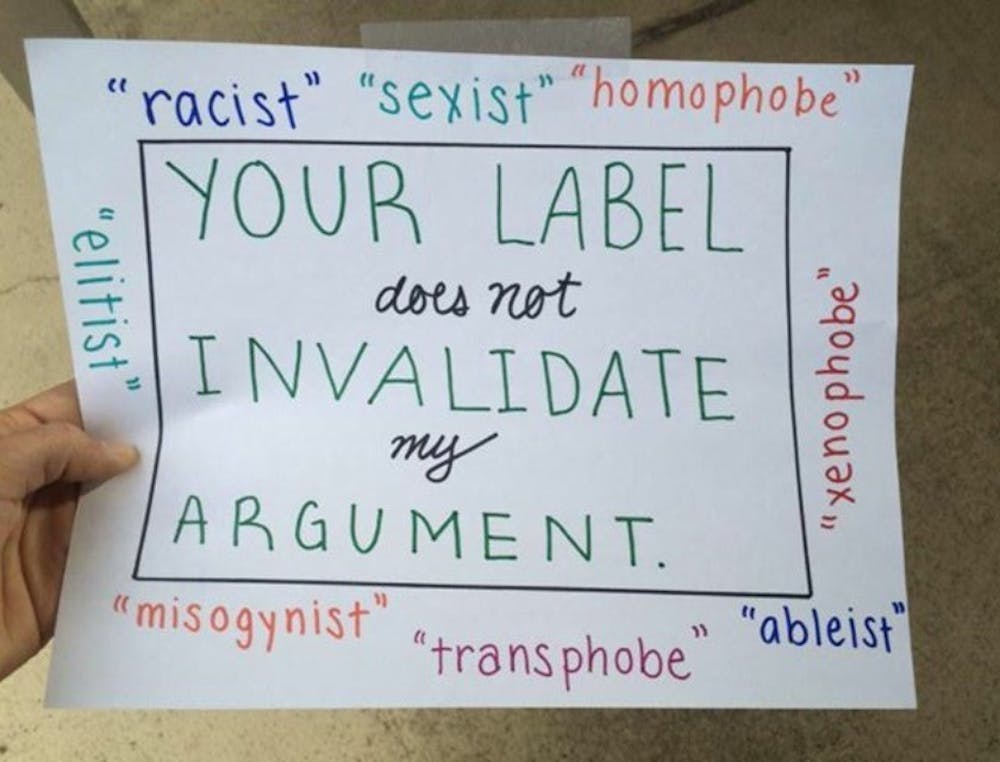Posters criticizing social justice actions were seen on campus Tuesday following a demonstration in solidarity with black students at University of Missouri Monday. The demonstration sought to educate and raise awareness about the recent protests at Missouri and how they apply to Richmond students of color, organizer Brittany McDermott said.
"Social justice is just the mask we now wear when silencing those we disagree with," one of the posters read. Another depicted a guillotine where the blade was labeled "safe space" and the victim was the bill of rights.
Another poster read: "Your label does not invalidate my argument." Melisa Quiroga-Herrera, who helped lead Monday's demonstration, said there had been similar signs displayed in the Jepson School of Leadership Studies, the Robins School of Business, the Gottwald Science Center, the Heilman Dining Center and the Tyler Haynes Commons.
An opinion piece published last Wednesday on The Collegian entitled "The danger of 'safe spaces'" resurfaced on social media today, adding to the tension.
"The article and the posters didn't make me feel safe," Quiroga-Herrera wrote in a Facebook message. "I did need a safe space on campus today. As I walked around campus, I would see students and wonder whether or not they would stand up for me in a situation that threatened my safety. That may be hypersensitive to some, but those were my raw emotions today."
Common Ground released a statement on their Facebook page Tuesday evening acknowledging the anonymous posters, and advocating for "respectful disagreement."
"[Common Ground has] no interest in tracking down the source of the posters," Glyn Hughes, director of Common Ground, wrote in an email. "What we are interested in is constructive dialogue, which anonymity (e.g. YikYak, unsigned posters) often undermines."
Common Ground's Facebook post drew a direct link from Monday's demonstration to Tuesday's posters.
"It seems clear that these anonymous sentiments are directly tied to the activism we have seen on campus," the post read. "Sharing experiences of marginalized people and communities in hopes of creating more respectful discourse on campus and in the world, does not mean we don’t want to hear from everyone in that dialogue."
The posters had no indication of future harassment or violence, according to the Facebook post.
"[Common Ground is] eager to talk with anyone who wants to learn more about how to have meaningful dialogue across differences," Hughes wrote, "especially when doing so openly seems daunting to the point of provoking silence or anonymity."
Contact features editor Kayla Solsbak at kayla.solsbak@richmond.edu
Enjoy what you're reading?
Signup for our newsletter
Support independent student media
You can make a tax-deductible donation by clicking the button below, which takes you to our secure PayPal account. The page is set up to receive contributions in whatever amount you designate. We look forward to using the money we raise to further our mission of providing honest and accurate information to students, faculty, staff, alumni and others in the general public.
Donate Now



